First of all, what is the plural of “grouse?” Grouses? Grice? I usually only see one Ruffed Grouse at a time so I’ve never had to work this out before. But when we were walking down the path from the lookout at Peyto Lake in Alberta in August, we saw not one but two birds among the Spruce trees.
Noticeable White Tail Feathers Lead to Some Ptarmigan Confusion
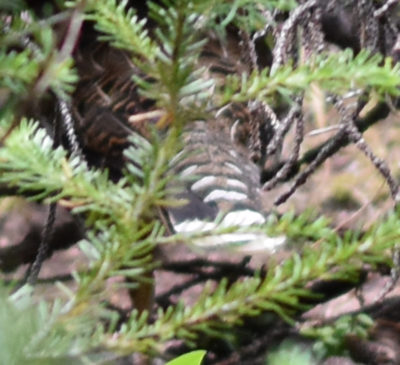
Some of the white tail feathers I noticed.
When I checked previous reports for birds at this Peyto Lake path, people had reported seeing both Ptarmigan and Grouse. Based on the field guides for Ontario, I had expected Spruce Grouse to have non-white tails. The first field mark I saw on the birds walking away from me on the trail were bright white patches on the tail. That led me to confuse the birds with Ptarmigan until I had a closer look at a field guide.
When Is a Spruce Grouse Called a Franklin’s Grouse?
All of the other features of these birds, from their shape, their heads, their behaviour and their habitat shouted “Spruce Grouse.” So I was reassured to find out that there is a special colour variation of Spruce Grouse in the Canadian Rockies called a Franklin’s Grouse. The most noticeable feature of the Franklin’s Grouse is white markings on the tail.
The AllAboutBirds website says that the Franklin’s Grouse is a sub-species.
The Spruce Grouses we saw were in the spruce forest. To my surprise, the Cornell website says these birds actually eat the spruce needles. They must have quite the good digestive system to get at the food value in those prickly short needles!
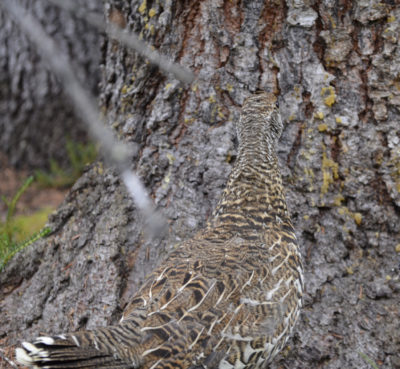
The bird’s camoflage is impressive.
The two birds we saw were either females or juveniles. The colouring of adult males is different.
These birds were unconcerned with all the people around them taking their photos. They perched, then gradually wandered off, stopping to preen and feed. I’d read about lost people catching birds with their bare hands: this was the first time I’ve thought that it could easily be true. These birds were unwary enough that a fast person likely could catch one. Fortunately for the birds, the people enjoying the park had no interest in breaking the law or tormenting the wildlife, so the only thing the birds had to tolerate was a lot of nearby chattering and shutters clicking.
According to the BC Breeding Bird Atlas, in the past Franklin’s Grouse had been considered a separate species from the regular Spruce Grouse. Sub-species or full species, it was a new species for me and I enjoyed my chance to see two so close and so calmly.
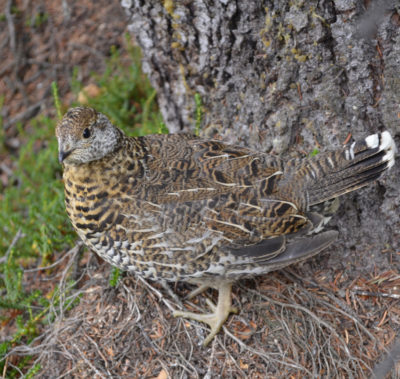
Another look at the tail feathers.
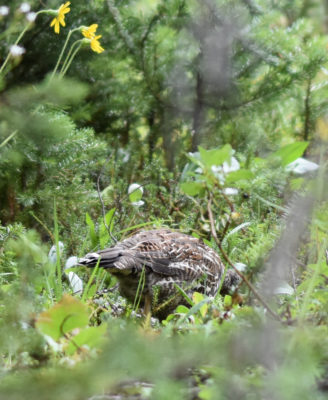
The birds blend in very well when they pick their path between the trees.
Related Reading
Join In
Have you seen Spruce Grouse or Franklin’s Grouse recently? Please share your sighting with a comment.

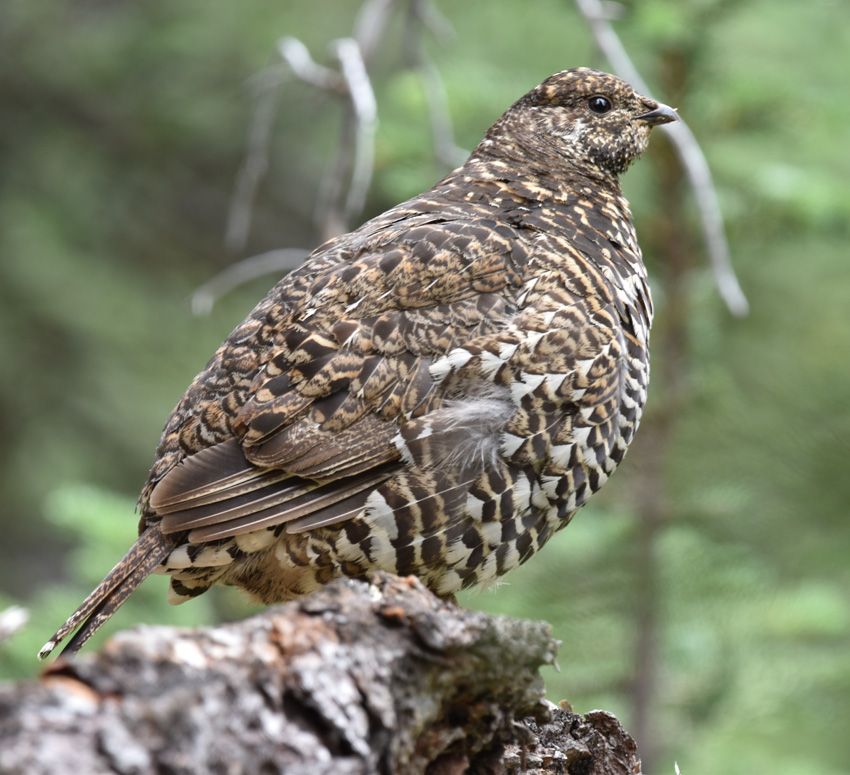
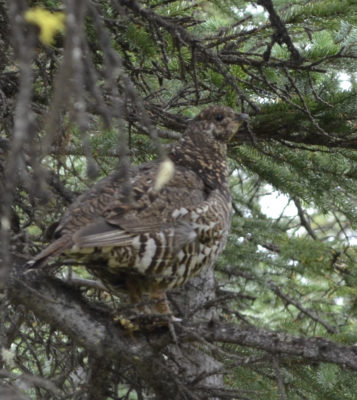
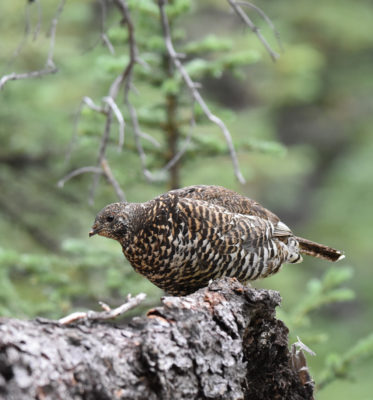
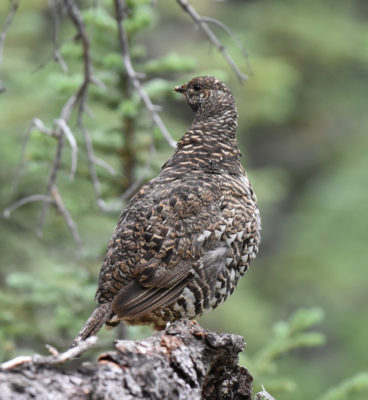
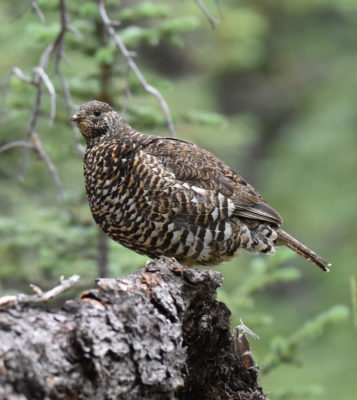
As a writer, you should know this: mouse – mice, house – hice, therefor grouse – grice. Really. (sigh)
Thanks! I also just found out the plural of Moose is “Danger.”
Franklin Grouse came to visit us right at front door of cottage on Baynes Lake, BC. Very very tame as we walked about it. So much so, we thought it must be a domestic chicken of some kind.
What a great experience!
Saw two Franklin’s grouse on the Mosquito Creek trail to North Molar meadow yesterday. Not the first time I’ve seen them on this trail.
That sounds like a great hike to me!